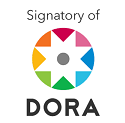Influence of design thinking methodology in improving teaching performance
Abstract
The purpose of the research was to determine the influence of the design thinking methodology in the teaching performance improvement of higher education students in Otuzco city. Methodologically, it was applied, with a quasi-experimental design, a quantitative approach, a longitudinal cut and an explanatory level. The sample consisted of 48 higher education students of the VI cycle. The survey technique was used and the questionnaire was employed as an instrument. The results of the post-test showed that 100% of the control group was in process while 100% of the experimental group was in achieved. The Whitney Mann U test was used for the data, which yielded a significance level of less than 0.05, accepting the alternative hypothesis. It was concluded that the application of the design thinking methodology workshop significantly improves the teaching performance of higher education students in Otuzco.
Downloads
References
Carrascal, S., Ceballos, I., y Mejías, J. (2019). Retos de la educación como agente y paciente de los cambios socioculturales. Revista Prisma Social, (25), 424–438. https://n9.cl/bsh71
Espinoza, E. (2021). Importancia de la retroalimentación formativa en el proceso de enseñanza-aprendizaje. Revista Universidad y Sociedad, 13(4), 389-397. https://n9.cl/qgmiu
González, H., y Rodríguez A. (2023). Autoeficacia en la gestión del aula en el profesorado de primaria y secundaria: variables predictoras y perfiles docentes. Aula Abierta, (52), 2023, 71-80. https://n9.cl/r5har
Holzberger, D., y Prestele, E. (2021). Teacher self-efficacy and self-reported cognitive activation and classroom management: A multilevel perspective on the role of school characteristics. Learning and Instruction, 76, 234-256. https://n9.cl/attsm
Hurtado, C., Villa, M., Caicedo, L., y Isea, J. (2024). A plithogenic statistical approach to digital security measures and emotional health in childhood and adolescence. Journal of fuzzy extension and applications, 5, 25-39. https://n9.cl/au5u0
Isea, J., Infante, M., Romero, A., y Comas, R. (2024). Human talent as a driving force in the management of ethics in the sustainable university. Salud, Ciencia y Tecnología - Serie de Conferencias 3, 1-9. https://n9.cl/jbjohe
León, J., Moreno, J., Arnal, L., Escudero, I., y Olmos, R. (2015). Baremación de una prueba estandarizada de resúmenes (RESUMeV) para los niveles de 4º y 6º de educación primaria. Clínica y Salud, 26, 23-56. https://n9.cl/kabi1
Lin, L., Shadiev, R., Hwang, W., y Shen, S. (2020). From knowledge and skills to digital works: An application of design thinking in the information technology course. Thinking Skills and Creativity, 36, 10-20. https://n9.cl/4hjaob
Lin, K., Wu, Y., Hsu, Y., y Williams, P. (2021). Effects of infusing the engineering design process into STEM project-based learning to develop preservice technology teachers’ engineering design thinking. IJ STEM, 8(1), 1-15. https://n9.cl/mgdq4
Martínez, P., Armengol, C., y Muñoz, J. (2019). Interacciones en el aula desde prácticas pedagógicas efectivas. Revista de estudios y experiencias en educación, 18(36), 55-78. https://n9.cl/k6vaa2
Martínez, G., Esparza, A., y Gómez, R. (2020). El desempeño docente desde la perspectiva de la práctica profesional. RIDE. Revista Iberoamericana para la Investigación y el Desarrollo Educativo, 11(21), 1-32. https://n9.cl/1o49p
MINEDU (2022). Análisis de resultados de las evaluaciones docentes en el Perú: serie de estudios elaborados durante el 2020. https://n9.cl/ueyit
Palacios, M., Toribio, A., y Deroncele, A. (2021). Innovación educativa en el desarrollo de aprendizajes relevantes: una revisión sistemática de literatura. Revista Universidad y Sociedad, 13(5), 134-145. https://n9.cl/7sbgo
Torres, M., Yépez, D., y Lara, A. (2020). La reflexión de la práctica docente. Revista Chakiñan de Ciencias Sociales y Humanidades, (10), 87-101. https://n9.cl/3wwdt
Velásquez, Y., Rose, C., Oquendo, E., y Cervera, N. (2023). Inteligencia emocional, motivación y desarrollo cognitivo en estudiantes. CIENCIAMATRIA, 9(17), 4-35. https://n9.cl/7h6oe
Wisniewski, B., Zierer, K., y Hattie, J. (2020). The Power of Feedback Revisited: A Meta-Analysis of Educational Feedback Research. Educational Psychology, 10, 1-14. https://n9.cl/c2dj5
Xiaoyue, W., Sun, H., y Xin, L. (2019). An Innovative Preschool Education Method Based on Computer Multimedia Technology. International Journal of Emerging Technologies in Learning, 14, 57 - 68. https://n9.cl/0v2ms
Copyright (c) 2025 Cristian Alonso Peralta-Guzmán

This work is licensed under a Creative Commons Attribution-NonCommercial-ShareAlike 4.0 International License.
LICENCIA DE CONTENIDO
Creative Commons
Atribución-NoComercial-CompartirIgual 4.0 Internacional (CC BY-NC-SA 4.0)
Política propuesta para revistas que ofrecen acceso abierto
Aquellos autores/as que tengan publicaciones con esta revista, aceptan los términos siguientes:
Usted es libre de:
Compartir — copiar y redistribuir el material en cualquier medio o formato
Adaptar — remezclar, transformar y construir a partir del material
La licenciante no puede revocar estas libertades en tanto usted siga los términos de la licencia
Bajo los siguientes términos:
Atribución — Usted debe dar crédito de manera adecuada, brindar un enlace a la licencia, e indicar si se han realizado cambios. Puede hacerlo en cualquier forma razonable, pero no de forma tal que sugiera que usted o su uso tienen el apoyo de la licenciante.
NoComercial — Usted no puede hacer uso del material con propósitos comerciales.
CompartirIgual — Si remezcla, transforma o crea a partir del material, debe distribuir su contribución bajo la lamisma licencia del original.
No hay restricciones adicionales — No puede aplicar términos legales ni medidas tecnológicas que restrinjan legalmente a otras a hacer cualquier uso permitido por la licencia.
DERECHOS DE AUTOR Y PERMISO
La revista permite que los autores tengan los derechos de autor sin restricciones.
La revista permite que los autores conserven los derechos de publicación sin restricciones; y garantizan a la revista el derecho de ser la primera publicación del trabajo.


















